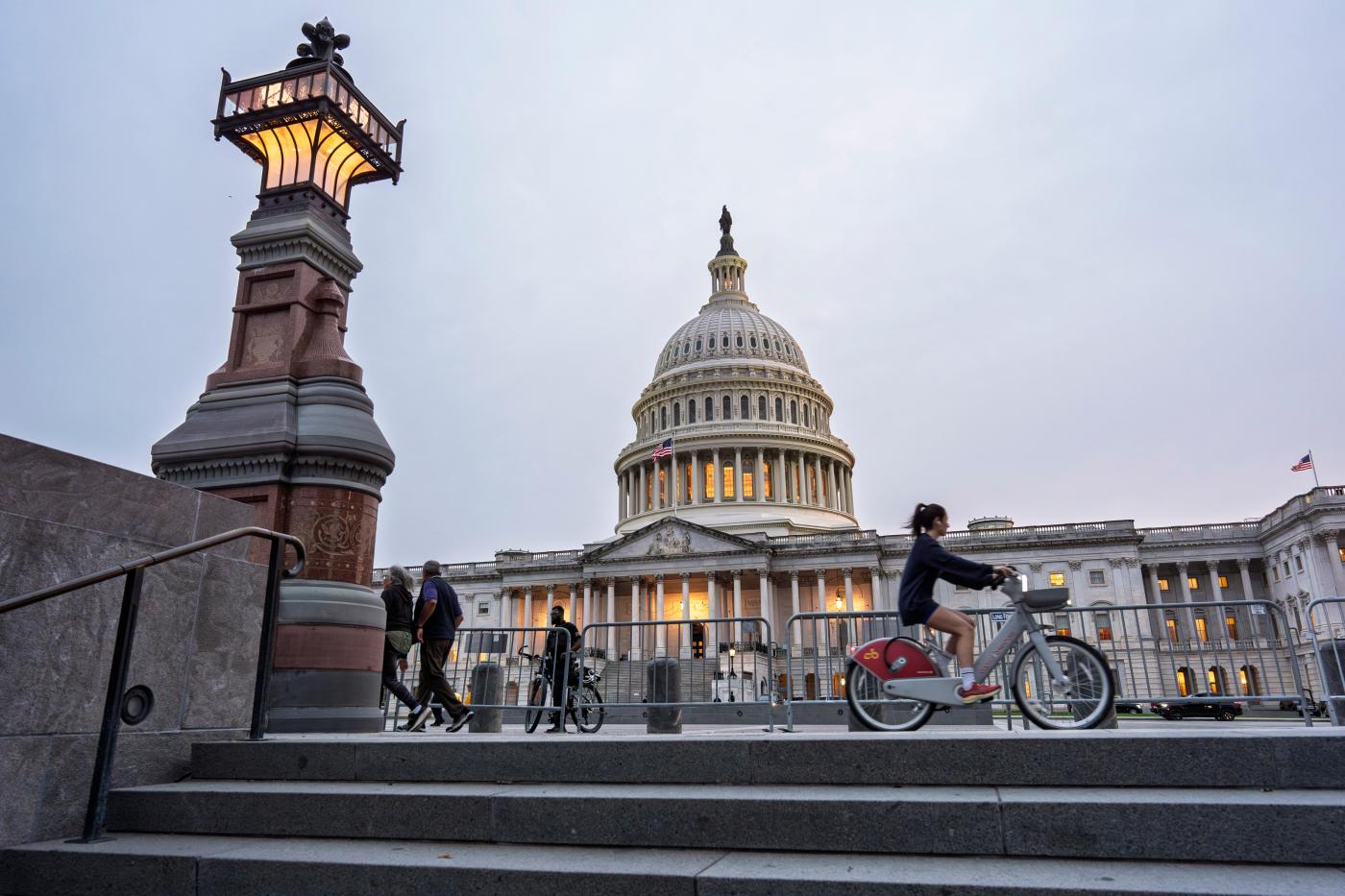A recent survey conducted by the Pew Research Center indicates that Americans are dissatisfied with both major political parties as the 2024 midterm elections approach. The report highlights a widespread sentiment that neither the Democratic Party nor the Republican Party is governing honestly or ethically. Notably, a majority of respondents—61% of Republicans and 57% of Democrats—describe their parties as too extreme in their positions.
The survey was conducted prior to the recent government shutdown, which may have influenced public sentiment. According to Peter Loge, director of the School of Media and Public Affairs at George Washington University, voters perceive both parties as catering primarily to their bases. As a result, elections are increasingly determined by primary voters who tend to hold more extreme views than the general electorate.
Currently, the Cook Political Report identifies only 17 of the 435 House seats as toss-ups for the upcoming midterms, with an additional 21 seats leaning towards either party. The rest are either likely to go to one side or are solidly in favor of the Democrats or Republicans. This indicates a lack of incentive for politicians to appeal to moderate voters, as many fear losing to primary challengers.
The Pew Research Center’s findings reveal significant frustration among Democrats, with 30% expressing anger towards their party. This dissatisfaction stems largely from a belief that Democrats are not sufficiently opposing the policies of former President Donald Trump. In contrast, only 40% of Republicans report feeling frustrated with their party, a discrepancy attributed to the current Republican control of the White House and both chambers of Congress.
Todd Belt, director of the political management program at GW, emphasizes the impact of power dynamics on voter sentiment. He notes that while Republicans have the ability to deliver on their policies, Democrats currently lack the federal power to enact significant changes, leaving their supporters feeling rudderless.
Looking ahead, the Democratic turnout in the midterms may hinge on whether their frustration is directed at their own party or at Trump. Loge suggests that Democrats need a clearer message to resonate with voters. He states, “Democrats have to figure out what it means to be a Democrat,” cautioning that the party’s current focus on opposing Trump may not be enough to secure election victories.
Despite the challenges, historical trends suggest a potential path for Democrats. The party of the sitting president has historically lost seats in the House during midterm elections, with Trump’s Republicans losing 40 seats in the 2018 midterms.
The survey highlights a stark contrast in sentiment between parties, with 69% of Republican voters feeling hopeful about the future compared to 50% of Democrats. Furthermore, 52% of Republicans report feeling proud of their party, while only 29% of Democrats express similar sentiments.
Interestingly, the survey also indicates a slight shift in the economic landscape. While Americans typically favor Republicans on economic issues, the margin has narrowed to just three percentage points, down from a twelve-point advantage in the previous two years. This could signal potential vulnerabilities for Republicans, especially if economic conditions do not improve.
Loge warns that if economic sentiment continues to deteriorate, it could spell trouble for the GOP. He notes, “President Trump’s policies are getting less popular, not more, across the board.” As public concerns about the economy grow, both parties may face increasing scrutiny.
The Pew Research Center also examined public opinion on a range of policy areas. While respondents sided with Republicans on issues such as crime, immigration, gun policy, and the budget deficit, they favored Democrats on topics like LGBTQ+ rights, abortion, racial policies, climate change, and healthcare.
As the political landscape evolves, Loge and Belt predict that public opinion towards both parties may decline further, particularly if the government shutdown persists. Loge remarked, “These survey results might be a high-water mark for public opinion about the political parties and Congress.”
As the midterm elections draw closer, the findings underscore the urgent need for both parties to address voter concerns and clarify their positions to garner support.






